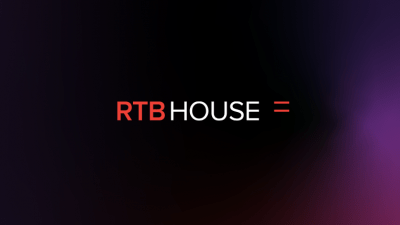Last Updated on: 18th July 2023, 12:32 pm
The testing season of cookieless tools has started with the announcement of Origin Trials for the Privacy Sandbox proposals. Adtech is now filled with various opportunities for testing – contextual targeting, identity solutions, first-party publisher’s audience data, or group-based methods. It is high time to leave feedback about specific tools in the places where it matters.
Table of Contents:
- What is the World Wide Web Consortium?
- Which groups at the W3C are worth following?
- What opportunities does the Interactive Advertising Bureau provide?
- What other discussion forums are relevant for cookieless preparations?
What is the World Wide Web Consortium?
The World Wide Web Consortium (W3C) is a community that develops the open standards for the growth of the web. It was founded in 1994 by Tim Berners-Lee who invented the world wide web in 1989 and still leads the community today.
Among the many concepts developed within the W3C, such as new versions of HTML and CSS programming languages, advertising is of particular importance as it helps to fund the functioning of the Internet. Therefore, when the Google Chrome team decided to phase out third-party cookies, W3C became one of the key discussion forums for the development of alternative advertising technologies.
However, some critics claim that the future of the W3C is unclear. Not long ago, MIT decided to leave W3C as the university partner, which sparked this discussion even more. Most critics claim that the idea of an organization with one decision-maker (Berners-Lee) is not a feasible solution in today’s world.
On the other hand, the work that the W3C does is so important that it must be continued in some way. Wendy Seltzer, W3C’s strategy lead and counsel, claims that Berners-Lee’s current role as arbiter of consensus will likely be filled by an advisory board of member companies and practitioners. These discussions may influence the long-term process of the adoption of privacy-preserving marketing technologies, but since the change is happening now, let’s instead focus on today’s environment.
Which groups at the W3C are worth following?
Improving Web Advertising Business Group
Founded in 2017, this group aims to work on and lobby for the capabilities of the web platform that can effectively support web advertising use cases, while taking into consideration the needs of all stakeholders, from users through advertising-related entities to web browsers.
Even before the announcement of the intended cookie withdrawal, one of the group’s core principles was protecting user privacy. This is why, after Google’s announcement to phase out cookies in 2020, the Improving Web Advertising Business Group was the go-to place to discuss the emerging APIs.
To date, most discussions on the innovative, privacy-preserving marketing APIs for the future web developed by Google and others were held within this group. However, due to the broad scope of the group’s activities, the incubation process of specific tools was relatively slow. Therefore, in October 2021, a new community group was formed to test and adopt the tools with the greatest potential.
Private Advertising Technology Community Group
Founded in October 2021, this group aims to “incubate web features and APIs that support advertising while acting in the interests of users, in particular providing strong privacy assurances.”
The rationale behind creating this group was also to make it independent from a specific browser or company, that’s why the chairs are diverse: Aram Zucker-Scharff from The Washington Post, and Sean Turner from sn3rd, a long-time chair of multiple technical community groups at the Internet Engineering Task Force (IETF). There are also multiple contributors to the group, including key engineers from Google, Mozilla, Meta, Microsoft, and a variety of adtech players. The group is still at the beginning stages of functioning, but one of the key proposals for the advertising industry, TopicsAPI, is already held in its repository.
Web Incubator Community Group (WICG)
As one of the oldest (founded in 2015) and most important groups, it provides a space for emerging proposals for new web platform features to host the repository for further discussions. Once the proposals are matured enough, they should be transferred to a dedicated working group to be developed further.
A multitude of proposals for private advertising is still hosted by WICG, including FLEDGE, Attribution Reporting API, and others. These repositories should be the go-to place for leaving feedback in writing about potential issues.
Privacy Community Group
Formed in early 2020, this group focuses on various aspects of privacy on the web, not only advertising-related. This group is chaired by representatives of different web browsers: Apple’s Safari, Mozilla’s Firefox, and Microsoft’s Edge. Out of the many proposals hosted by the group, Private Click Measurement is worth mentioning as it is a key feature in Safari for the measurement of advertising campaigns.
What opportunities does the Interactive Advertising Bureau provide?
The Interactive Advertising Bureau (IAB) is an organization associated with leading media companies, agencies, brands, and technology providers. Its main task is to promote and educate about the possibilities of digital advertising and to create new technical standards for the industry.
In 2014, the IAB founded the IAB Technology Laboratory (Tech Lab) to engage members of the advertising community in developing technology and standards for the ecosystem. One of the standards developed within Tech Lab is the Transparency & Consent Framework, leading to a unified collection of user consent for ads.
In 2020, IAB Tech Lab started the Project Rearc initiative in response to the deprecation of third-party cookies. It focuses on three groups of tools: unlinked first-party audiences, browser or operating system-linked audiences, and 1:1 linked audiences.
The first one consists of tools making it impossible to link the publisher audience to the advertiser audience. An example of such a tool is the recently-announced Seller-Defined Audiences.
The second one relies on the browser or operating system to establish the link between audiences. In IAB Tech Lab, the discussions on these tools are held within the Privacy Enhancing Technologies Working Group. Examples of such methods include the Privacy Sandbox from Google or Parakeet from Microsoft.
The 1:1 linked audiences requires a technology offering a token for the user identity resolution. In this case, Tech Lab supports the project of User ID 2.0 and released the “Best Practices for User-Enabled Identity Tokens” guidelines.
By participating in meetings of various groups within Project Rearc and the Privacy Enhancing Technologies Working Group, advertising community members can influence the development of standards.
Also, IAB Tech Lab frequently organizes online and offline events, during which various technologies are discussed, like the recent IAB & Google Chrome and Android Town Hall on Privacy Sandbox.
What other discussion forums are relevant for cookieless preparations?
Apart from these two key organizations, there are three more worth mentioning.
Prebid
Prebid was originally created to make the advertising auctions more competitive. The way to achieve it was through header auctions, instead of waterfall auctions. Header bidding allows publishers to monetize their inventory in the most optimal, transparent, and fair way.
Within Prebid, there are many Project Management Committees responsible for navigating the way forward for Prebid. The three key discussion forums in the area of preparations for the cookieless world are Prebid.js, Identity, and Addressability Framework PMC.
The Prebid.js Project Management Committee includes all the work on Prebid.js, the open-source software enabling header bidding. The Identity Project Management Committee focuses on establishing a shared first-party user identifier, called Shared ID. Addressability Framework PMC aims to develop an open-source solution for the responsible use of addressable identifiers.
All these groups work through regular virtual meetings where discussions are held.
Internet Engineering Task Force (IETF)
IETF is an organization focused on making sure the internet works better. Its key task is to produce technical documents influencing the way of using the internet. There are numerous working groups within IETF, such as Privacy Preserving Measurement, which recently released a protocol, which may become the basis for future measurement in advertising.
IETF is also known for regular meetings, “IETFs”, with the 114th meeting in Philadelphia in July and the 115th meeting in London in November. They often announce changes that will be standard on the internet in a few years’ time. One example is Josh Karlin’s IETF 111 presentation in July 2021, where a FLoC change to Topics was signaled for the first time.
World Federation of Advertisers (WFA)
WFA is a global organization representing marketers from over 60 markets. It created a workstream dedicated to working on privacy-preserving APIs. The key focus of this workstream is on the cross-media measurement of advertising campaigns. During one of the recent calls within W3C’s Private Advertising Technology Community Group, WFA’s proposal for cross-media measurement was presented and positively received.
The list of discussion forums presented in this article is definitely not exhaustive. There are countless others, focusing on different aspects of the change, or on specific markets. However, those mentioned above are perceived as the most influential on the shape of the future web. We strongly recommend following them and taking part in the public discussions during the meetings or in GitHub repositories.
If you have any questions, comments or issues, or you’re interested in meeting with us, please get in touch.





